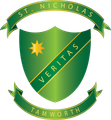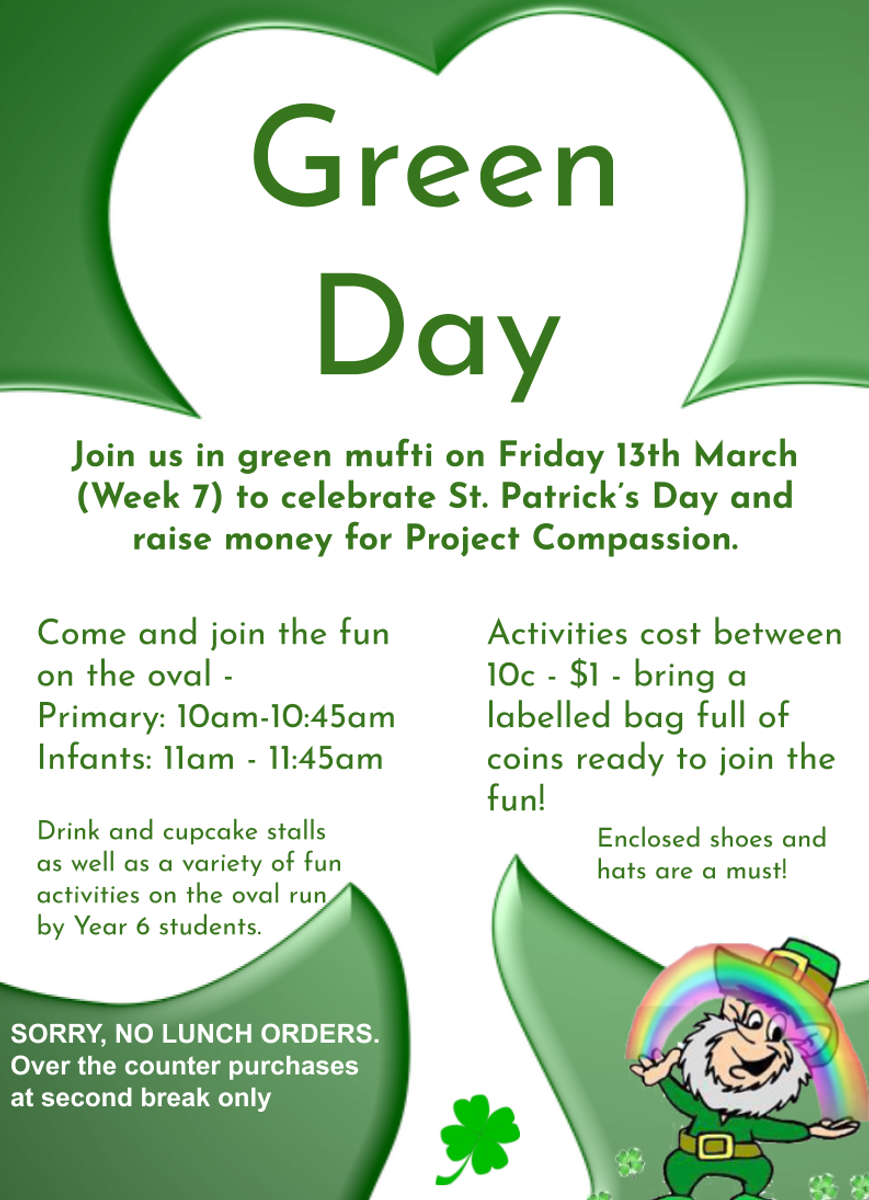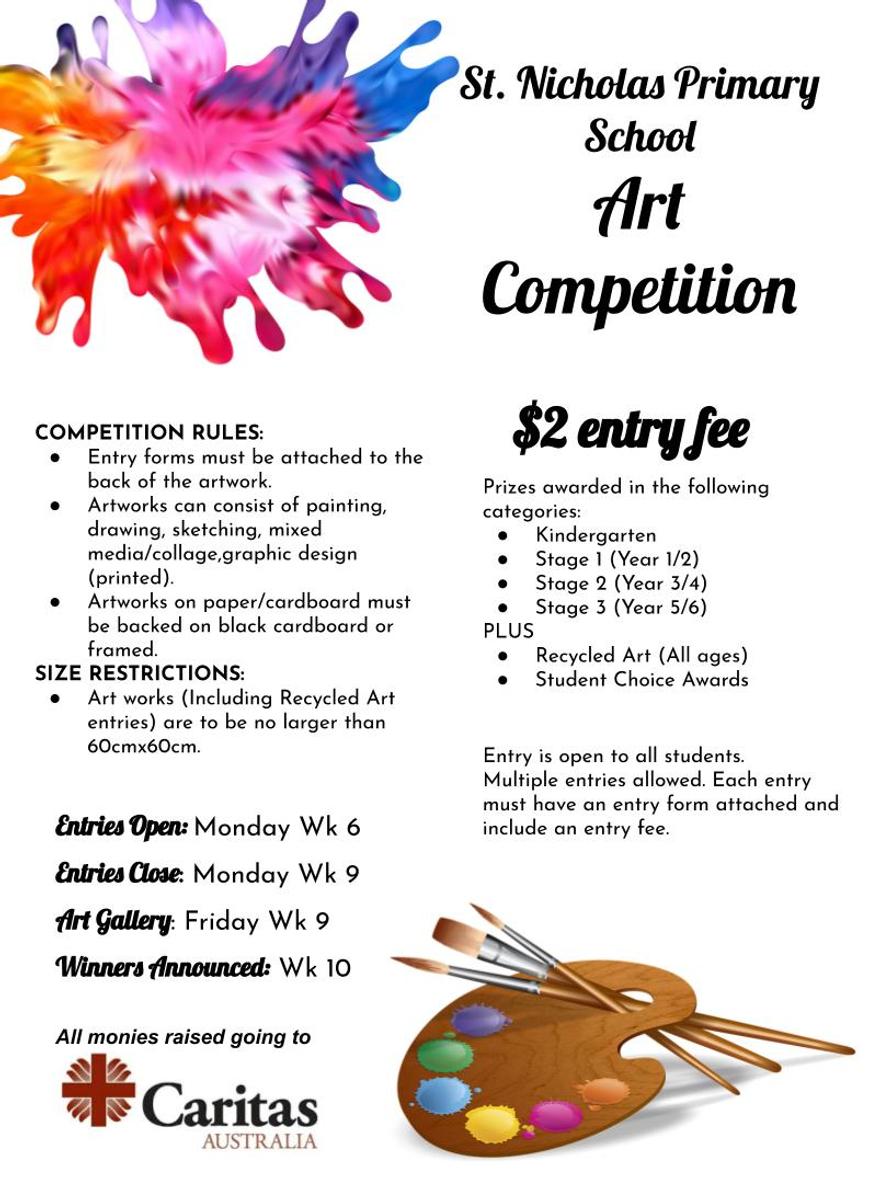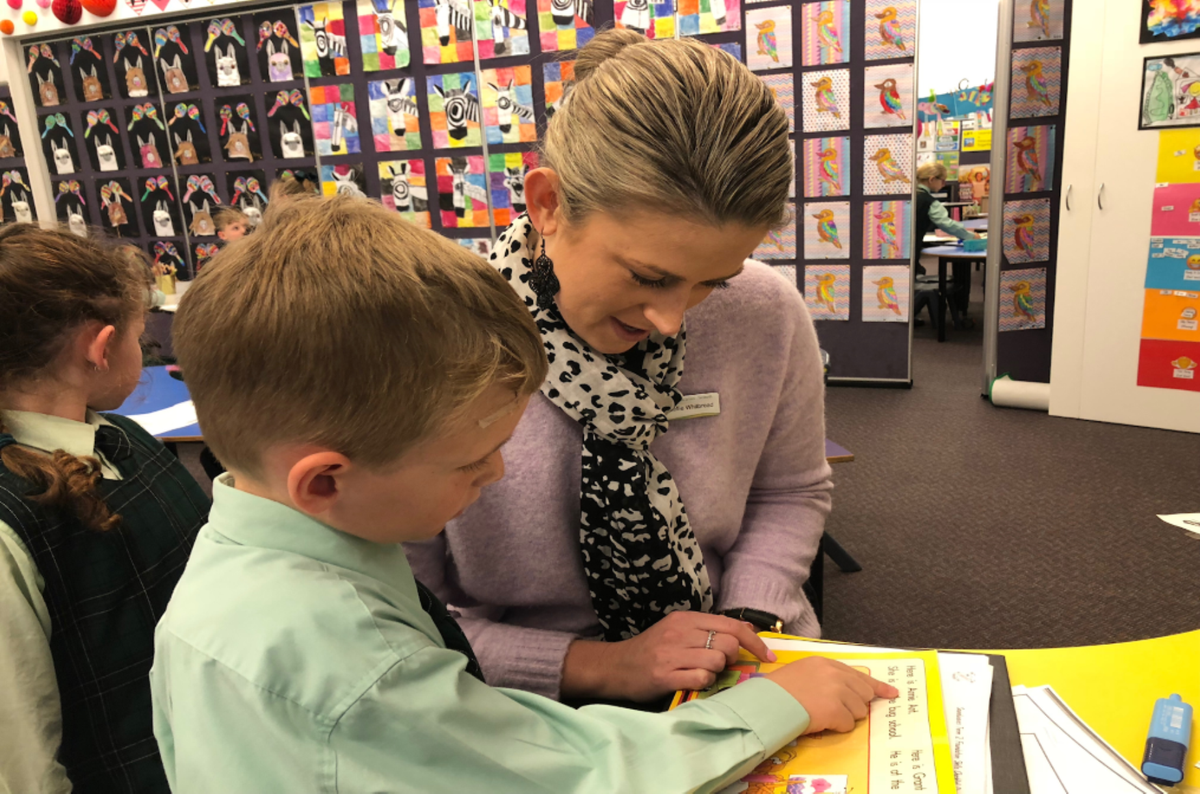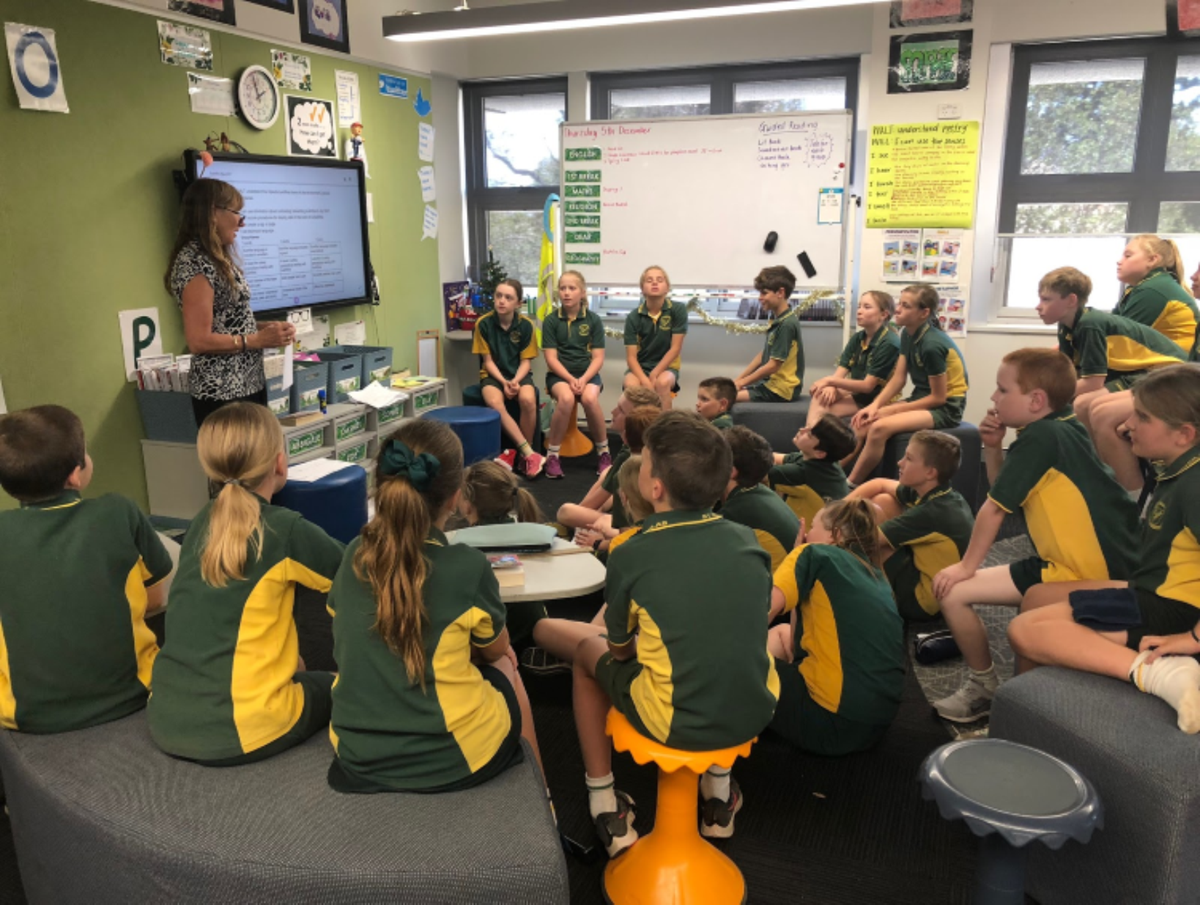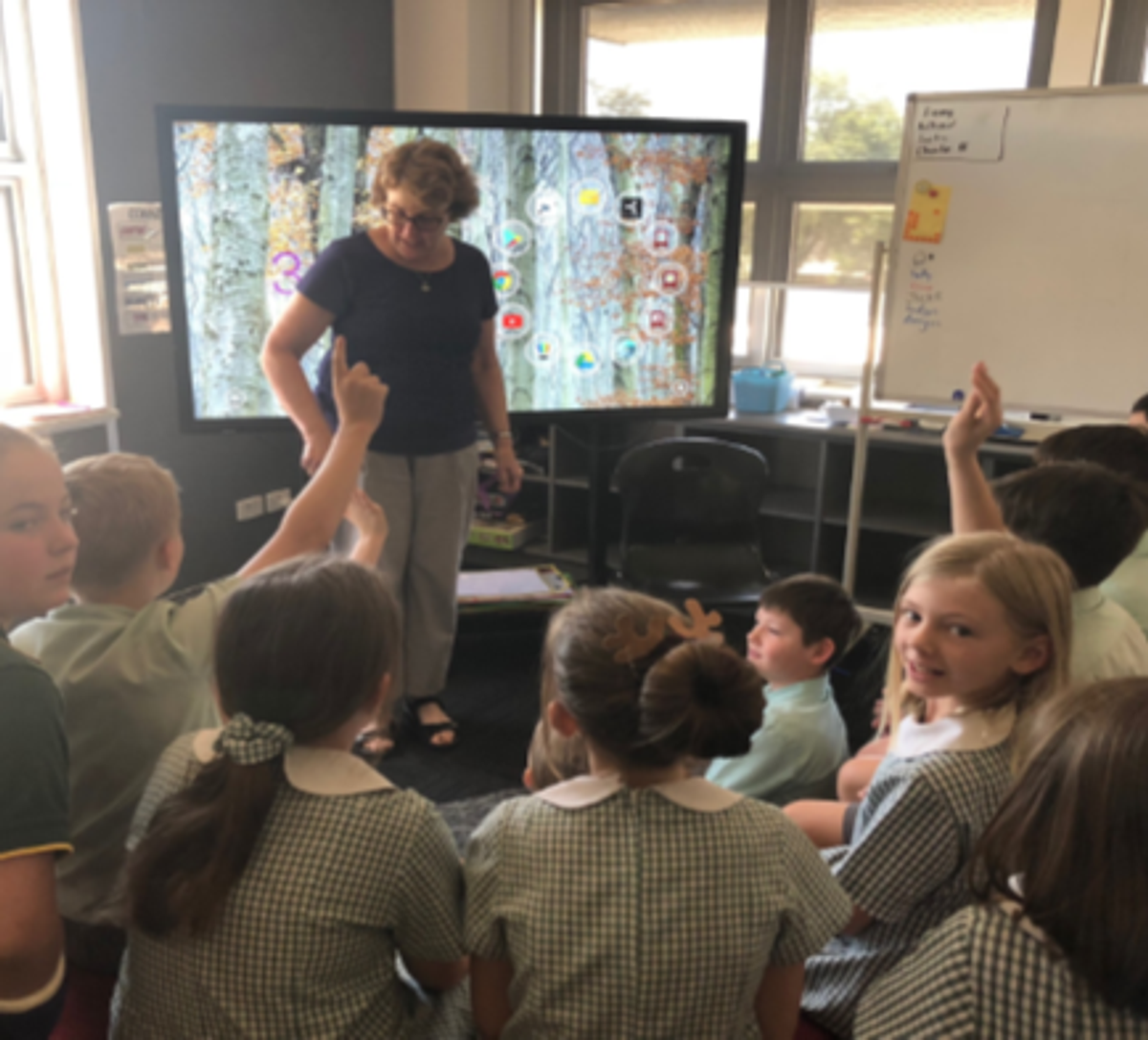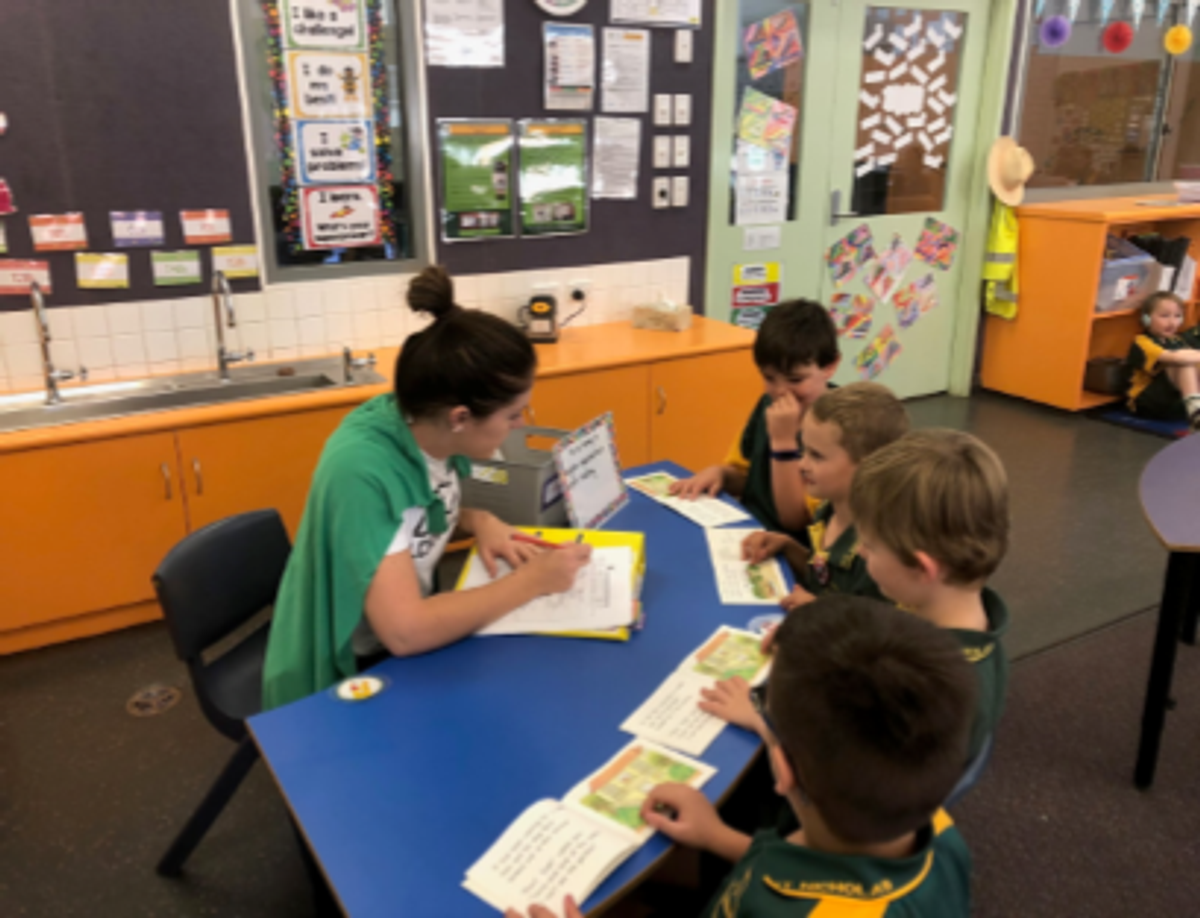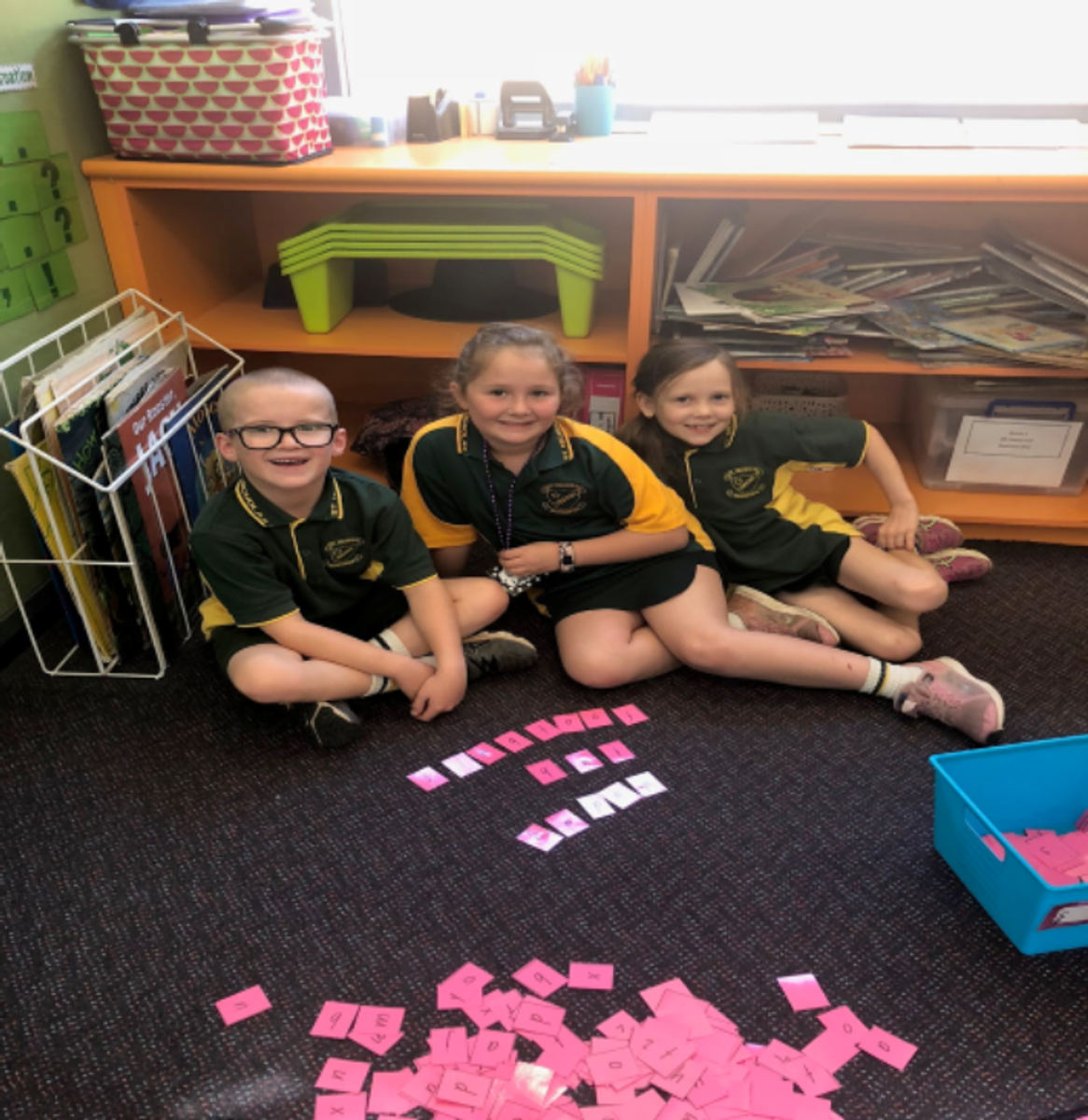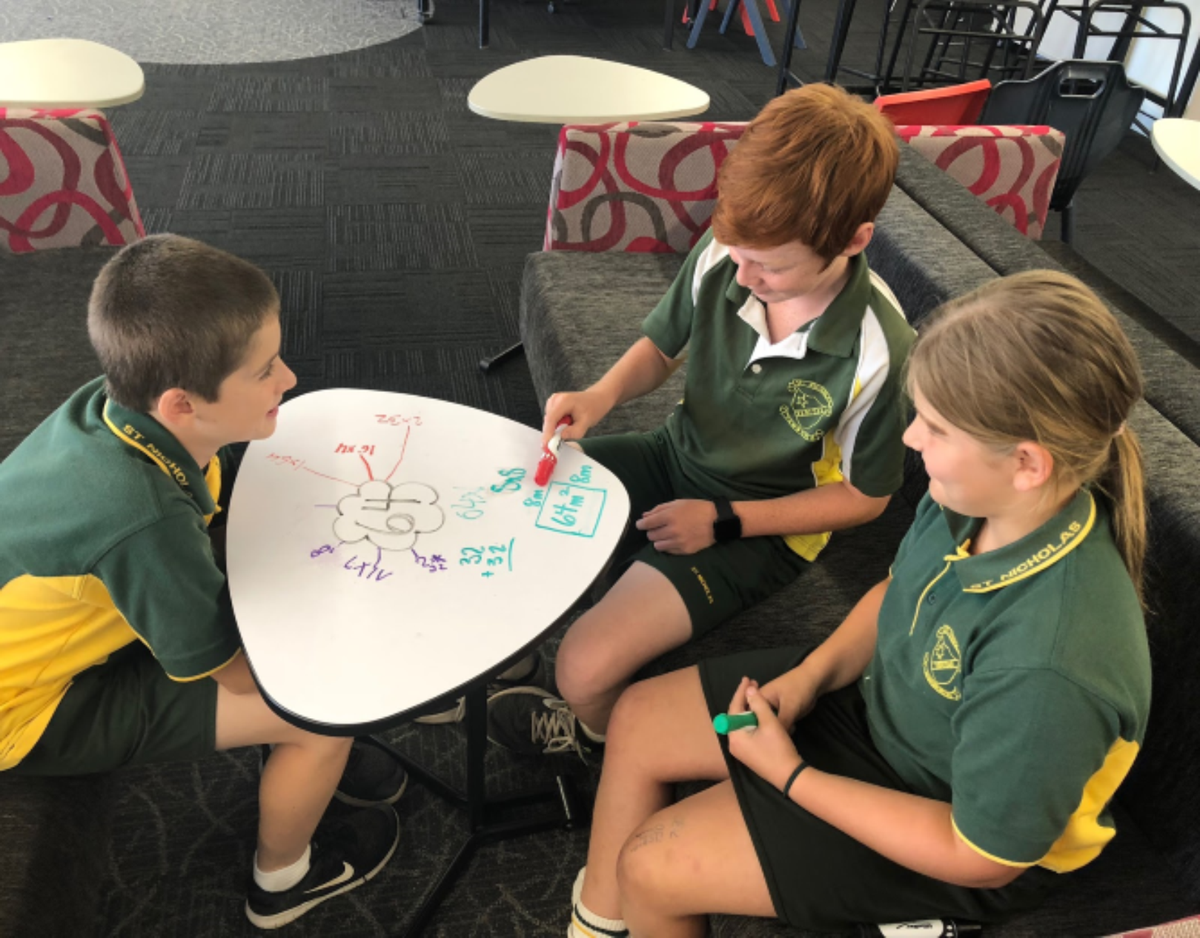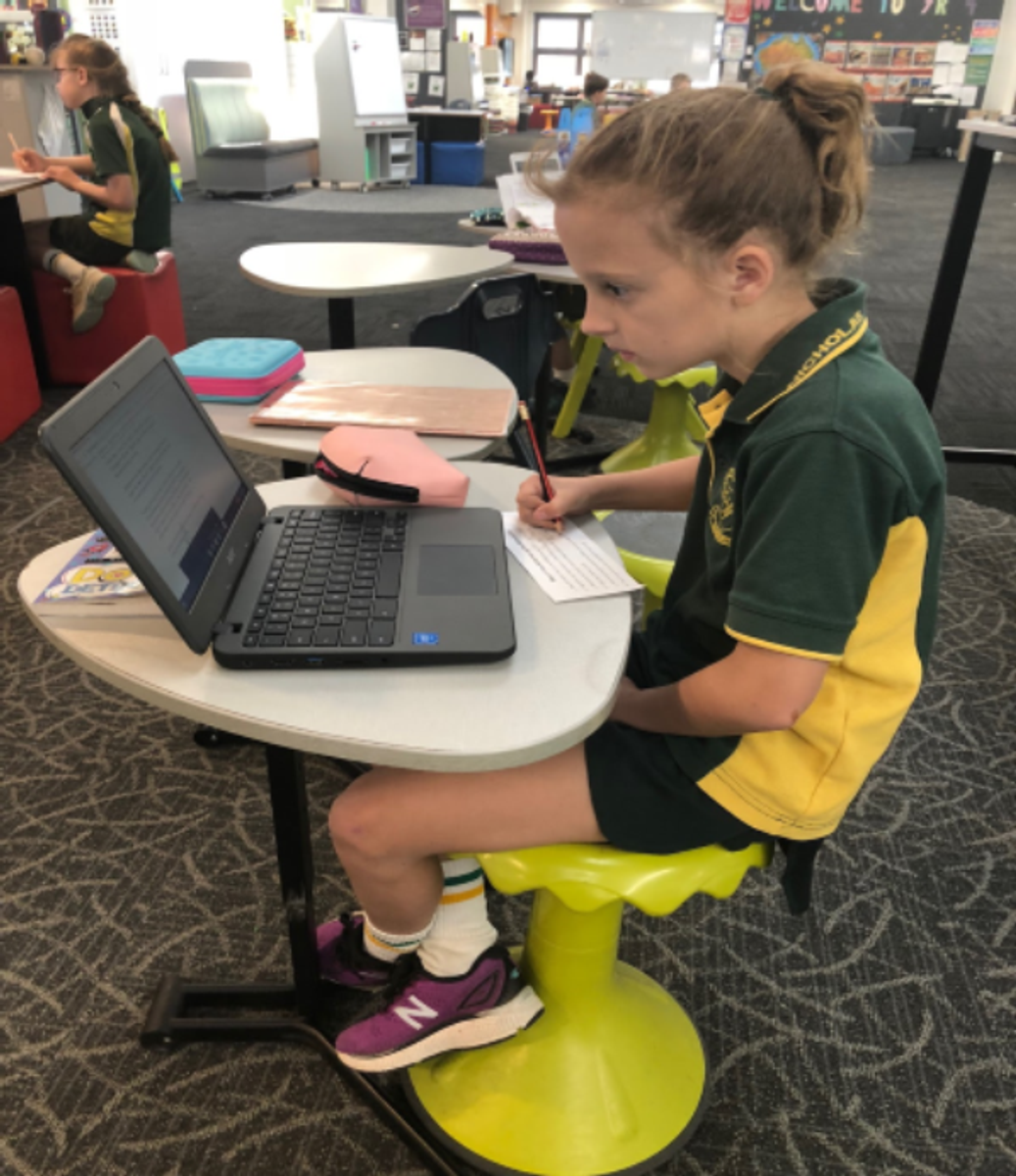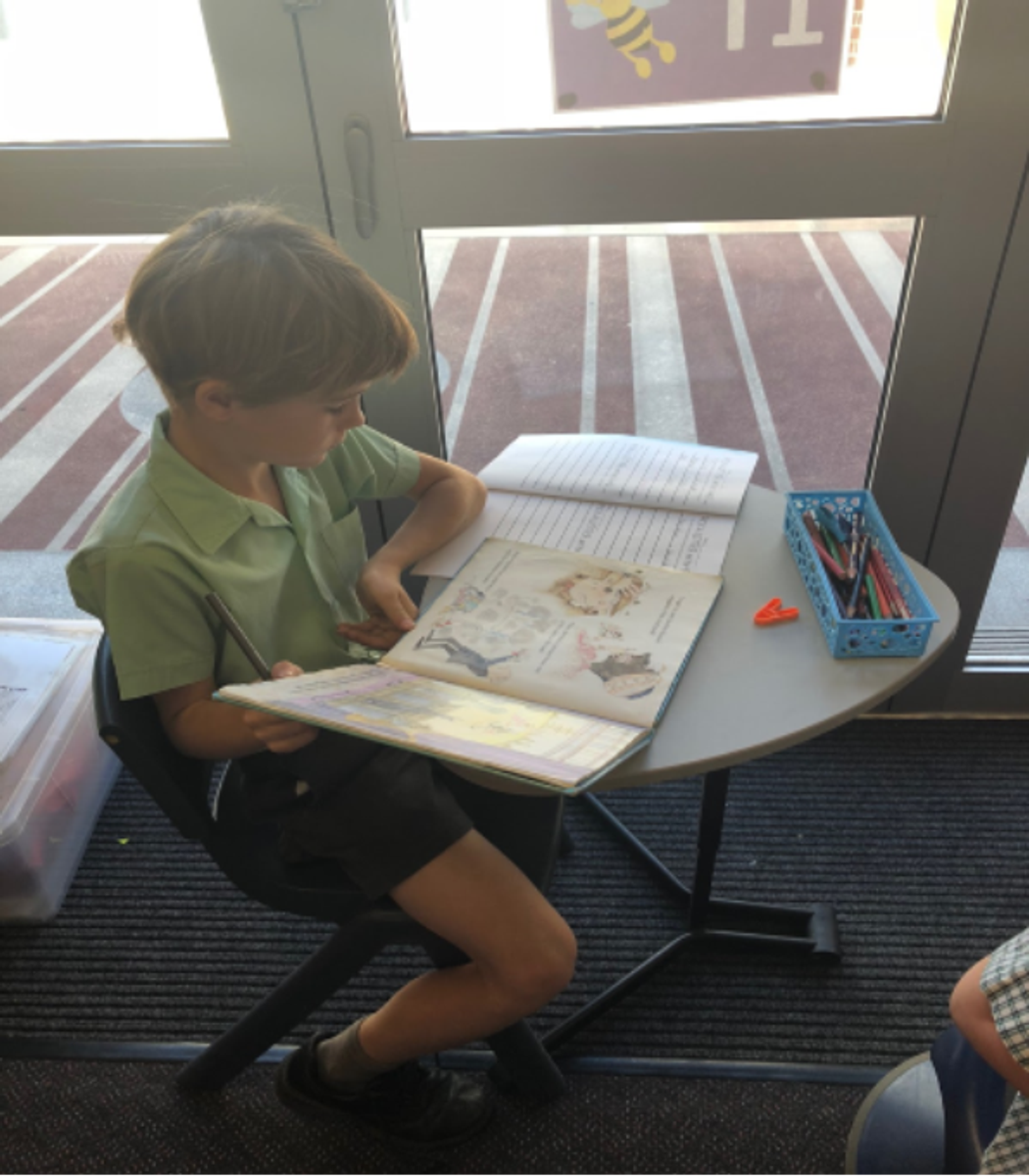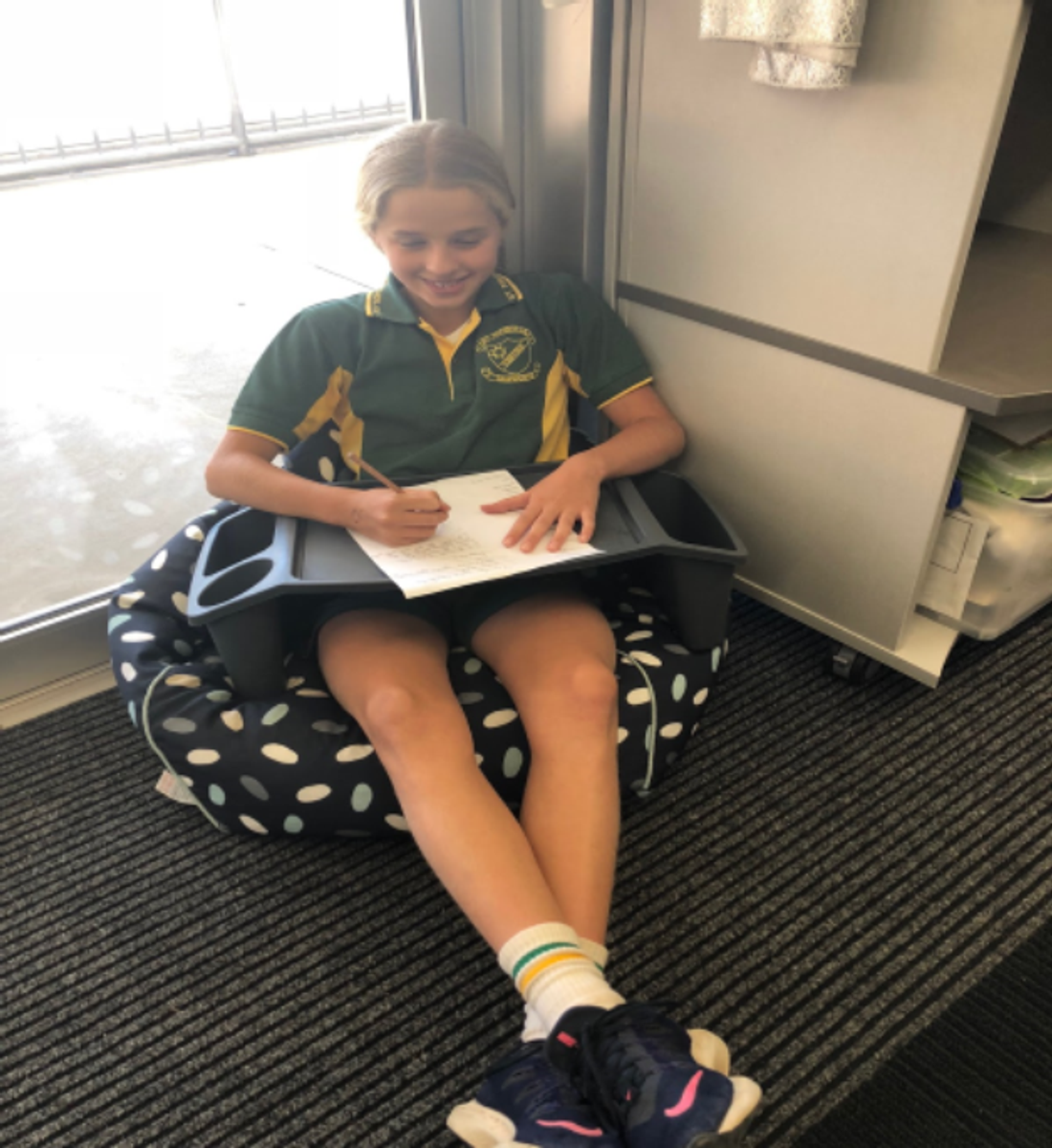GENERAL NEWS
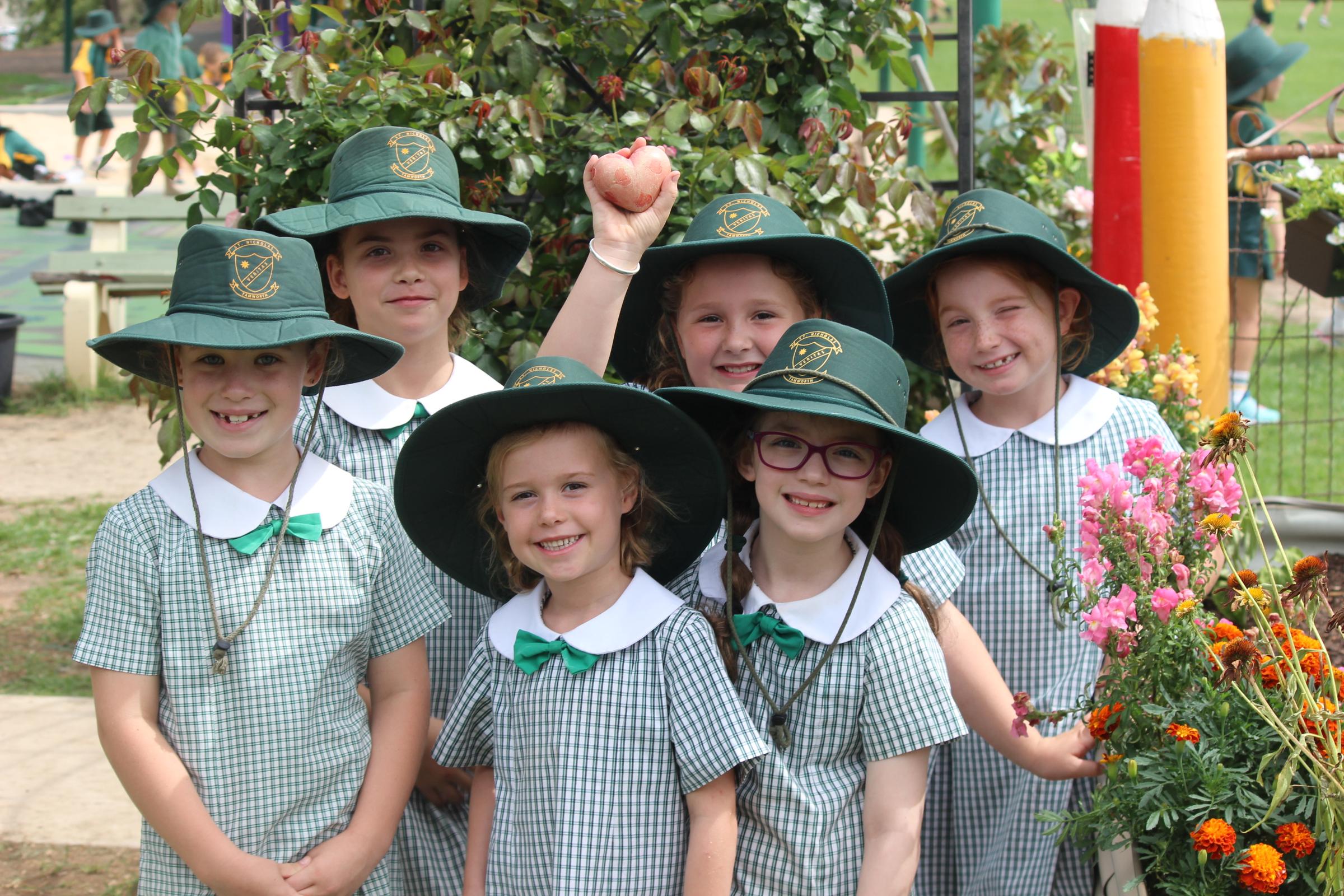
2020 GREEN DAY
GARDENING CLUB
Co-ordinator - Mrs Catrina O'Mullane
Rain! Rain! Rain! We have been so lucky to have some rain in the past month so the Garden Club is looking great! Our main goal for 2019 was to keep the citrus trees alive and I am happy to say we succeeded. The drought has taught us to be water conscious and to consider our use of this wonderful resource.
So what are our goals for 2020? We are hopeful that we may be able to plant some zucchinis, strawberries, and sweet peas very soon and with the help of our wonderful water tanks keep them alive. We are hoping to do some cooking with the fruits and vegetables we grow. Students enjoy watering the plants and playing with the fairies that can be found in this area. The conversations, role playing and imaginative play that is happening in this area is truly wonderful.
The Garden Club is a special place that we are encouraging the students to treat with care. Students can come and make new friends, humans, animals and plants. We have been lucky enough to have ladybugs visit and a family of caterpillars making their homes on the lime tree. Nature truly is a wonderful thing to observe.
GOOD HYGIENE
LATE ARRIVALS & EARLY DEPARTURES
Our school hours are 8.45am to 2.55pm. For the benefit of your child's education, please support us by leaving your child in class without disturbance during these hours.
- Parents need to sign their children in at the office if they arrive after 8.45am.
PUPIL FREE DAYS
Please mark your 2020 diary ....
Monday, 4 May 2020 - Pupil Free Day
Monday, 20th July 2020 - Pupil Free Day
ART COMPETITION
READING LEVELS EXPLAINED TO PARENTS
Often as teachers we are asked questions by parents about reading levels, so we feel there is a need to provide further information for you. We value the positive partnership between parents and the school, so we hope you find this information helpful.
AVOID COMPARISONS
Just as children learn to walk and talk at different times, so too with reading. Therefore, it is firstly important to avoid any comparison of children to their peers or siblings. There is much involved in teaching reading skills and strategies, but rest assured that every teacher at St Nicholas is working very hard to ensure personal growth with every child based on their individual needs.
READING LEVELS AT ST NICHOLAS SCHOOL EXPLAINED
The formal reading assessment tool we use at St Nicholas School is the PM Benchmark system (with levels from 1-30). The books are designed so that with the earlier levels (1-14) the difficulty/ challenge between levels is generally minimal, therefore children can gradually move through these levels in lots of small steps.The next range of levels (15-24) sees greater challenges and larger steps between each level, so progression through these takes longer. And the final range of levels (25-30) involves significantly greater challenges and much larger steps between levels. Progression through these upper levels takes a much longer time; often children remain on the same level for more than six months.
WHY IS MY CHILD BRINGING HOME READERS OF A PARTICULAR LEVEL?
Parents need to know that the ‘home readers’ your children bring home are based on what is known as their ‘independent level’. This means that the books are not meant to be too challenging. The purpose of ‘home readers’ is for children to enjoy reading and develop confidence as they practise their skills at home with their parents. At school however, the teachers work specifically with your child at a more challenging/ higher level known as their ‘instructional level’.
HOW DO TEACHERS AT ST NICHOLAS SCHOOL TEST READING AND KNOW WHEN TO MOVE A CHILD UP A LEVEL/S?
Parents are often not aware that there is so much more to assessing a child’s reading than simply hearing them read a book. Whilst teachers informally hear your child read every week during guided reading sessions, they formally monitor and test your child’s reading through a very explicit and complex process (known as conducting a ‘running record’). This detailed assessment takes up to 20 minutes for each child. Through careful analysis and by applying numerical formulas, they can then determine a child’s ‘instructional reading level’. Our teachers are experienced and trained in assessing and analysing a wide range of technical elements of reading such as:
- errors and self corrections (and identifying if these involve meaning, syntax or visual cues)
- word omissions, substitutions and insertions
- word attempts, repetition or appeals
- comprehension (literal, applied and inferential) of both fiction and non-fiction texts . Often we find that a child can read every word in a text but their deeper levels of comprehension are not yet evident.
In short, even if your child’s progression through the levels appears to take time, rest assured that they are receiving quality reading instruction every single day at school. We hope this information assures you that there is more to your child’s reading development than the number on the front of their home readers.
Thank you for your continued support and interest in your child’s education. And please don’t forget to continue to enjoy the simple pleasure of sharing a book of any description with your child.....just for the love of it!
by Mrs Amanda Doyle and Mrs Shelly O’Sullivan
Leaders of Pedagogy (St Nicholas School)
CHANGES TO SCHOOL ASSEMBLIES
Due to the whole school and our parent community no longer fitting comfortably into the Auditorium for fortnightly school assemblies, we have made the decision to host a separate Infants Assembly (K-2) and a Primary Assembly (3-6). Assemblies will continue to be every fortnight on a Friday at 2pm in the Auditorium however alternate between Infants and Primary as the hosts.
Term 1
Week - 6 (Primary Assembly - Hosted by Year 5)
Week - 8 (Infants Assembly - Hosted by Year 1)
Week - 10 (Primary Assembly - Hosted by Year 4)
Please note Year 3 and Kinder will be the hosts in Term 2
SCHOOL LITERACY BLOCK
Minimum Interruptions to the classrooms between 9.00am and 11.00am
Could we please ask that we have minimum interruptions to the students learning. This includes not making medical appointments etc between 9:00am and 11:00am (School Literacy Block).
For afternoon arrangements, we ask that you make these with your child before school. We have many students coming up during the day to find out their afternoon routine. This disrupts the flow of their learning as well as making the office an even busier place.
If you are collecting your child during the day, please send in a note to the teacher, and come to the office to sign your child out. There is no need for a phone call to the school.
We thank you for your understanding in these matters, and look forward to a fabulous year with your children.
LEARNING SPACES AT ST NICHOLAS SCHOOL
What are Campfires, Waterholes and Caves?
One of our goals at St Nicholas School this year is to maximise the potential of our modern new learning spaces. We do this with the intention of providing quality opportunities for modelled, shared, guided and independent learning. Below is a brief explanation of the way our students and staff are now using our spaces. This is based on the research of educational futurist David Thornburg, and already we are seeing evidence of improved student engagement and learning.
The campfire is a space where a group meets to gather knowledge and instructions.
In the campfire learning space, the experts are not only teachers and guest speakers, but can also be students who share their learning with peers and other teachers.
ONE VOICE TO MANY!
Waterholes are spaces where students work in small groups to complete tasks. They are encouraged to discuss, collaborate and share ideas.
Watering holes are informal spaces where students can share information,
knowledge and discoveries. Students can learn from others as well as teach and help others.
The cave is a space where students work independently to complete tasks.
The cave is a private space where a student can think, reflect,
and transform learning from external knowledge to internal belief.
When a student is working in a cave, we encourage and respect their private, quiet, individual time.
STUDENT ABSENCE
Please notify the school if your child is absent. Due to government legislation, notification of your child's absence must be received no later than 7 days after your child's last day of absence.
You can do this in the following three ways ....
1. Telephone our office staff (office hours 8am to 4pm).
2. Email our office staff (admin@stnicholastamworth.catholic.edu.au).
3. Use the school website home page to send through a student absentee.
Many parents are surprised by their child's absence details when receiving the end of Semester reports. Please do not panic. Notifying the school can be easily forgotten, especially when caring for an ill member of the family. If you are in doubt as to whether you have notified the school, please contact our office staff and they are more than welcome to print you a list of your child's absences and rectify.
SUPERVISION OF STUDENTS
All parents need to be aware our supervision of students
does not begin until 8.15am each day.
Last year we became increasingly concerned that children were being dropped off and left on their own, unsupervised by parents before this time - often up to half an hour earlier. This is not a safe or acceptable practice. Currently students are expected to come in and sit in the Holy Family Courtyard unsupervised and wait. We cannot be responsible for any accident or potentially harmful incidents occurring. Please organise alternative care for your child if your child requires supervision before 8.15am.
